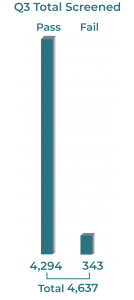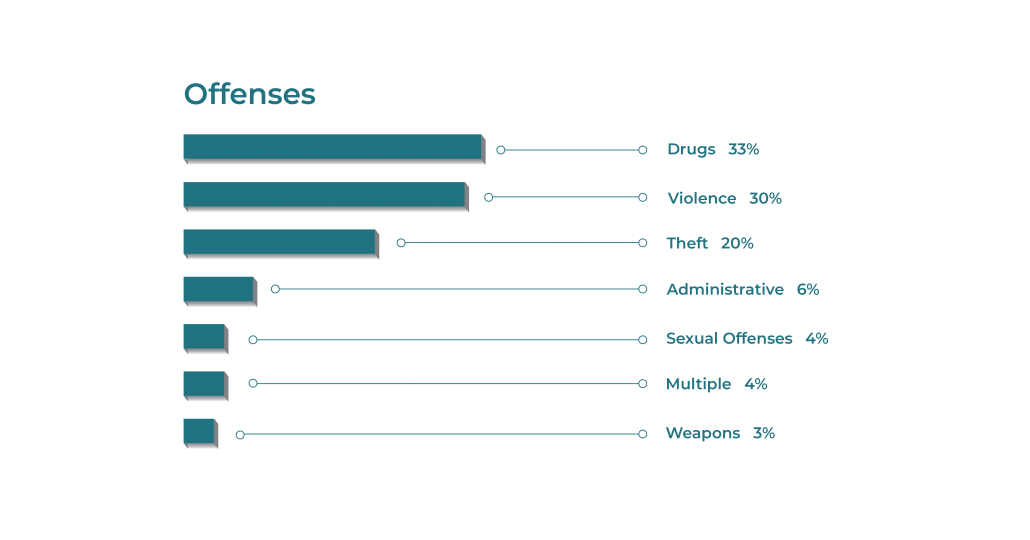3 Ways Background Checks Improve Your Hiring Process
Integrating a pre-employment background check into your company’s hiring process gives you the best chance of making the best hire. Folding rigorous, thorough vetting into your decision helps you go beyond taking an application and interview purely at face value. Instead, carefully curated employment background screenings provide invaluable data to validate your perspective on the applicant’s fit.
Read how administrating background checks improve your hiring process and gives you the clarity and confirmation to hire the right person for the right job.
Verifying application information
Resume fraud is real. So, background checks help employers find the truth, and the right type of screening will uncover inconsistencies between resume and reality. Finding a difference between what was submitted and what is actually real for an employee’s history helps determine which applicants are worthy of consideration.
Hiring an applicant that fabricated parts or all of their job history opens your organization up to a loss in credibility. Then, preserve your business’s reputation by avoiding a fraudulent hire.
Double checking competencies and capabilities
On top of confirming the accuracy of an applicant’s basic information, you also want to corroborate what they say about their qualifications and skills. A job applicant may misrepresent or mischaracterize their actual experience or educational accomplishments. It could be their job title at a previous job. Or it could be their academic degree. It could even be a credential—like licensure or certification for job-specific roles—essential to your vacant position.
The wrong hire could affect your company’s bottom line. Hiring an applicant that over-embellished their abilities can lead to financial losses over time. Bringing in an underqualified person for a job they’re unable to perform means low productivity and, thus, lower profitability.
Making a safe choice for your company and community
Above all else, a pre-employment screening should ensure your hire won’t jeopardize the safety of those you employ and those you serve. Upholding the trust and equity your business has built with its own employees and the public at-large should never be sacrificed. So, background checks help you cover the bases and provide insurance for deciding on the right hire.
Certain jobs entrust individuals with high levels of responsibility, from driving company vehicles to even using firearms. A background check uncovers the applicants truly qualified to carry out these sorts of tasks. Implementing a background check into your screening helps find out if an applicant’s past raises any red flags. It can’t preclude you from hiring an employee—that protection is law, part of the Fair Credit Reporting Act—but it can help you make the appropriate determinations. For example, if you’re hiring a delivery driver, you’d want to know if an applicant has any DUIs.
A background check helps you hire with confidence. Hiring managers carry the burden of making critical decisions for their businesses, and they need to make informed ones. Therefore, bringing on the right employee helps keep the company’s people and community safe while preserving its credibility. So, making the wrong hire can have a devastating ripple effect on each of those criteria.
New to the world of how background checks improve your hiring process? Then, explore our wide array of insights, tips and employment background screening guides on the OneSource blog.

 The Quarter 3 Report shows the OSCC program has continued to increase safety for many organizations. In Quarter 3, the total number of applicants screened reached well over 4,500 applicants. From this total, 343 applicants did
The Quarter 3 Report shows the OSCC program has continued to increase safety for many organizations. In Quarter 3, the total number of applicants screened reached well over 4,500 applicants. From this total, 343 applicants did 